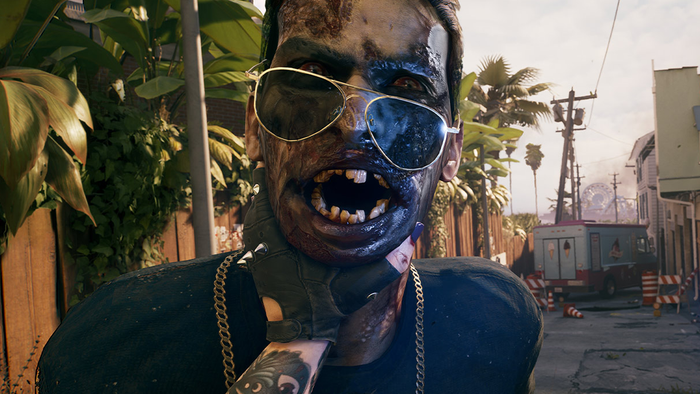The Promise and Peril of COVID-19 for Hard-Pressed Indie Game Devs
The recent global COVID-19 pandemic that's sweeping the globe is complicating matters for scores of indie game developers, threatening their alternate income streams and putting them in danger of having to abandon their projects.

For a great many indie video game developers I've known and worked with, putting months and months of hard work into a game while scraping by financially is a way of life. For them, it's about the passion involved in building something they love and are proud to share with players. The financial aspects will always be secondary – even if they're hardly making ends meet.
And there are more indie game devs than ever in that unhappy position, at least if a recent analysis of sales data from uber-platform Steam is to be believed. According to a study done by indie game label No More Robots, the average game released on the platform this year earned a paltry $16,000 in revenue, which is a whopping 70% less than similar games released in 2018. That likely translates into countless developers who would be living below the poverty line if they had no secondary sources of income to fall back on.
The good news is that many working in the industry do have other sources of income. Some work for big game developers churning out AAA titles, but as anyone would admit that's no walk in the park. Others hold down full-time jobs in unrelated industries, working long hours to keep their game development dreams alive. At best, the situation for many indie devs can be described as precarious at best, and nightmarish at worst.
Then came the coronavirus.
The recent global COVID-19 pandemic that's sweeping the globe is complicating matters for scores of indie game developers, threatening their alternate income streams and putting them in danger of having to abandon their projects in favor of more profitable work. And since nobody's quite sure of when it's going to end or what the full effects might be, here's a look at how the situation might play out for indie developers all around the world.
A Possible Temporary Boom
In the short term, the coronavirus pandemic might have some benefits for indie game devs, as millions of people continue to be quarantined at home and usage of platforms like Steam surges. The additional traffic should translate into increased sales almost across the board, at least for games that are of sufficient quality. Still, going by the numbers mentioned earlier, even a return to the sales volumes of 2018 would only just about double the average developer's take on a given game. Needless to say, that's still not enough for someone to live on – unless they're working out of somewhere with an insanely low cost of living.
Still, indie games might be boosted further by the fact that several AAA titles appear likely to face delays in their release schedules. Enjoying a period of higher-than-normal demand while up against little serious, big-name opposition could work wonders for the bottom lines of indie devs. The same goes for any potential delay in the launch of the upcoming PS5 and Xbox Series X consoles. Every minute that they stay out of players' living rooms is an extra day where PC games will reign supreme, and more money will flow towards new releases, not many of which are coming from major studios.
The Eventual Dry Spell
All of those factors combining into a potential sales boost for indie developers can't go on forever, though. Eventually, as things return to some semblance of normal, the major game systems will release, flashy new titles will come out, and people will have a whole lot less free time to spend on gaming. That could create a big swing in attention away from indie games that could do lasting damage to creators. With overall sales already hurting year-over-year, not even a coronavirus quarantine bump might be enough to make it financially viable for huge numbers of developers to keep working on games once things go back to business-as-usual.
When you combine that likelihood with the fact that the big annual indie developer conferences like BitSummit have been called off in the wake of the pandemic, the outlook darkens even more. It's going to mean that plenty of indie games that come out post-crisis will do so without the benefit of a marketing buildup of any sort, robbing them of the buzz that creates most of their sales. Taken all together, it seems very likely that for indie developers, the real crisis is going to begin roughly 6-12 months after the pandemic subsides – except by then there won't be any government bailouts forthcoming, and individual developers are going to face tougher times than they did before any of this happens.
An Indie Scene Forever Altered
Although none of this is written in stone, odds are that some version of the timeline detailed here is what's in store for the indie game scene in the coming months. With luck, the worst effects will be blunted and the vast majority of developers will find some way to keep on keeping on. If not, it's hard to see a future that doesn't contain scores of developers giving up on making games as a primary income source out of sheer financial necessity. After all, with their primary jobs on hold, not many will get through this situation unscathed. It's not as though they can simply trade in games to make up all that lost income, after all.
So, the bottom line for independent game developers seems to be clear. It's that they have to take action now to try and make the most out of the additional site traffic and gameplay that's going on all over the world. They can't spend the windfall, though. Instead, they should be hunkering down for what's likely to be a long, unprofitable few months in the post-coronavirus world. And they'll have to do all of it while working without a net. Since nobody can know the exact contours of how this will play out, the best anyone can do is save every dime and hope they can hang on until brighter days return.
Read more about:
BlogsAbout the Author(s)
You May Also Like













